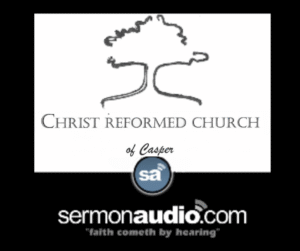LORD’S DAY 46
- Why did Christ command us to address God thus: “Our Father”?
To awaken in us at the very beginning of our prayer that childlike reverence for and trust in God, which are to be the ground of our prayer, namely, that God has become our Father through Christ, and will much less deny us what we ask of Him in faith than our parents refuse us earthly things.1
[1] Matt. 7:9–11; Lk. 11:11–13; *1 Pet. 1:17; *Isa. 63:16.
- Why is it added, “in heaven”?
That we might have no earthly thought of the heavenly majesty of God,1 and from His almighty power expect all things necessary for body and soul.2
[1] Jer. 23:23–24; Acts 17:24–25, 27. [2] Rom. 10:12; *1 Kgs. 8:28; *Ps. 115:3.
The Fruitful Soil of Faith
Question 117 taught us that a true prayer will flow out of an assurance of salvation in Christ. Question 120 explores this point in more detail. The prayer that delights God is one that acknowledges the truth of who He is, and God is a gracious God who loves to do good for His people. He is a faithful Father who always cares for His children, even through suffering and deprivation, and He calls us to trust in Him.
I cannot expect God to hear me at the same time as I am calling Him a liar and call into question His goodness. The Israelites who had been rescued by God from slavery in Egypt complained against God saying that He brought them into the wilderness to die. They did not trust God to care for them, despite all He had already done. God’s anger against them proves the point that question 120 is making, that the prayer that God delights in is the prayer that reflects a trust in God as He has revealed Himself.
So Jesus directs us to start our prayer with “Our Father.” This is not a formula to be recited out of rote obedience, but a mindset with which to start our prayer, to ground us in the right understanding of the God we serve. He is good and benevolent, and when we are united to Christ by faith we can have full assurance and confidence that God is going to do very good things for us and is doing them now. The conviction of faith is that God is good not only in the abstract, but as a personal matter directed toward us specifically. We have no right to claim God’s goodness outside of faith in Christ, for that would be to pit God’s goodness against His justice, something God will never permit. But under the umbrella of Christ’s perfect righteousness we can claim the goodness of God as extending to us personally. Question 21 tells us that true faith, in addition to knowledge about God’s truth, is also a hearty trust that extends the promises of the gospel to myself personally, rather than believing them only in the abstract. True faith regards God as my Father, not just a father.
The importance of this cannot be overstated. The whole Christian life is impossible until we come to the conviction that God is good, and that His benevolence is directed toward me personally because of His love for Jesus Christ and my union with Jesus. Sin flows out of the desires that we have, desires ultimately for the glorious existence of a perfect state, and the attempts to fulfill those desires immediately in a world under the curse of sin. But when we can rest in the salvation of Christ and trust that all good things will be given to us by God in His time, then we can disconnect from that destructive pursuit of the satisfaction of our desires in the present state. We can recognize that we’re in the wilderness and that won’t be very comfortable a lot of the time, but that we’re on our way to the Promised Land and it’s there that we will see the satisfaction of all our desires. That enables a life of trust, a life of rest in Him, waiting on Him to do good for us, and simply seeking to do what is right in all the affairs of our lives and being busy at the work He has given us to do, not out of a desire to attain God’s good things for ourselves but out of thankfulness for all He has done and will do for us.
So our Christian life starts at the same place our prayer does- “Our Father.” Nowhere do we see this goodness more profoundly and clearly displayed as in the cross of Christ itself; there we see the tremendous love that God has toward His creation, and how it is He expresses it to us specifically. As Paul says in Romans 8, if God would do that for us, what would He not do? Confident of His love and benevolence toward us, just as a small child is confident that his parent will take care of him, we can simply rest in His goodness and grace. We can pray “Our Father,” and because of the perfect righteousness of Jesus Christ and the love the Father has for His own son, be confident that the Father will view us as His beloved. Out of that confident hope in God, every good Spiritual thing will grow.


Comments are closed, but trackbacks and pingbacks are open.